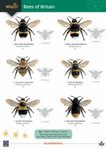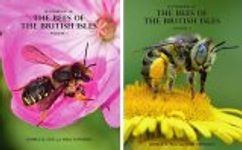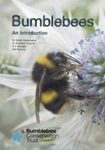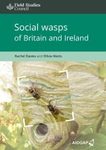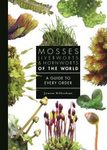By: Bryan N Danforth(Author), Robert L Minckley(Author), John L Neff(Author)
488 pages, 16 plates with colour photos; 113 b/w photos and b/w illustrations, tables
The most up-to-date and authoritative resource on the biology and evolution of solitary bees. Winner of the 2020 PROSE Award in the category "Single Volume Reference/Biological Science", awarded by the Association of American Publishers.
![The Solitary Bees The Solitary Bees]()
Click to have a closer look
About this product
Customer reviews
Biography
Related products
About this product
While social bees such as honey bees and bumble bees are familiar to most people, they comprise less than 10 percent of all bee species in the world. The vast majority of bees lead solitary lives, surviving without the help of a hive and using their own resources to fend off danger and protect their offspring. This book draws on new research to provide a comprehensive and authoritative overview of solitary bee biology, offering an unparalleled look at these remarkable insects.
The Solitary Bees uses a modern phylogenetic framework to shed new light on the life histories and evolution of solitary bees. It explains the foraging behavior of solitary bees, their development, and competitive mating tactics. The book describes how they construct complex nests using an amazing variety of substrates and materials, and how solitary bees have co-opted beneficial mites, nematodes, and fungi to provide safe environments for their brood. It looks at how they have evolved intimate partnerships with flowering plants and examines their associations with predators, parasites, microbes, and other bees. This up-to-date synthesis of solitary bee biology is an essential resource for students and researchers, one that paves the way for future scholarship on the subject.
Beautifully illustrated throughout, The Solitary Bees also documents the critical role solitary bees play as crop pollinators, and raises awareness of the dire threats they face, from habitat loss and climate change to pesticides, pathogens, parasites, and invasive species.
Customer Reviews
Biography
Bryan N. Danforth is professor of entomology at Cornell University. Robert L. Minckley is senior lecturer in biology at the University of Rochester. John L. Neff is director of the Central Texas Melittological Institute.
By: Bryan N Danforth(Author), Robert L Minckley(Author), John L Neff(Author)
488 pages, 16 plates with colour photos; 113 b/w photos and b/w illustrations, tables
The most up-to-date and authoritative resource on the biology and evolution of solitary bees. Winner of the 2020 PROSE Award in the category "Single Volume Reference/Biological Science", awarded by the Association of American Publishers.
"The Solitary Bees provides a holistic overview of the astounding diversity of solitary bee species, integrating recent scientific advancements with fascinating stories of complex behaviors. This book will inspire a new generation of scientists to focus their passion on studying these species while helping all of us better appreciate the amazing bees in our backyards, farms, and parks."
– Christina M. Grozinger, Pennsylvania State University
"This is a wonderful book – a much-needed addition to the literature on bees and pollinators."
– Laurence Packer, author of Keeping the Bees: Why All Bees Are at Risk and What We Can Do to Save Them
"The Solitary Bees is the essential guide to the biology, phylogeny, and behavior of these unsung heroes of the bee world. It skillfully blends the most up-to-date scientific knowledge with natural history studies to provide stunning insights into this fascinating group."
– Simon Potts, University of Reading
"A significant contribution by respected leaders in this important field of research. This is the first book to synthesize what we know about the evolution, lifestyles, and associates of solitary bees."
– Robbin W. Thorp, coauthor of California Bees and Blooms: A Guide for Gardeners and Naturalists
"This inspiring and informative book is a sorely needed resource for all those who care about the conservation of pollinators. The Solitary Bees is a pleasure to read."
– Mace Vaughan, Xerces Society for Invertebrate Conservation
"This richly detailed yet accessible book covers the ecology, evolution, and life history of solitary bees. A must-read for seasoned researchers as well as those who are new to the field."
– Neal M. Williams, University of California, Davis
"Finally, we have the definitive book on most of the world's bee species – the solitary bees. Danforth, Minckley, and Neff have written a book that is extremely well-informed, full of charming natural history, and delightful to read."
– Rachael Winfree, Rutgers University


























